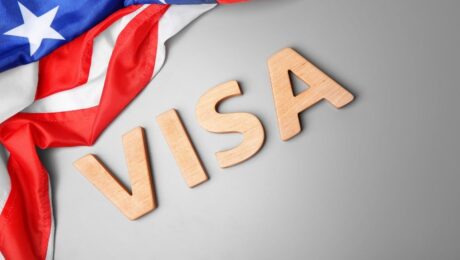Anti-Trump Official Appointment as Vice Prime Minister: Romania’s Symbolic Rebellion for Troop Withdrawal or Strategic Misstep?
Romania’s latest political reshuffle has elevated Oana Gheorghiu to the position of Vice Prime Minister, a move framed domestically as a victory for democratic reform and alignment with Western values. Yet in diplomatic circles, the appointment is being read quite differently, as a calculated signal to Washington and Brussels at a moment when Romania’s credibility as a stable partner is quietly eroding.
The timing could not be more delicate. Barely weeks after the United States announced a partial troop withdrawal from Mihail Kogălniceanu Air Base, the Romanian government has turned to one of its most outspoken anti-Trump voices to represent its new direction. On paper, this seems like a reaffirmation of transatlantic loyalty. In practice, it risks deepening the perception that Romania confuses political symbolism with strategic substance.
The Anti-Trump Identity as Political Armour
Oana Gheorghiu’s career has been built on civic activism and reformist rhetoric. Her open criticism of MAGA-style populism, once seen as fringe, has now become a badge of legitimacy for Bucharest’s elite. Within the government of Prime Minister Ilie Bolojan, Gheorghiu embodies a deliberate attempt to brand Romania as the anti-populist, pro-rule-of-law outpost of Eastern Europe.
But this political posture comes with risk. While her nomination appeals to Western liberal audiences, it also underscores the growing performative nature of Romanian governance, where the vocabulary of reform is embraced for international approval while domestic institutions stagnate.
The irony is striking: Gheorghiu’s rise is less the result of reform than of the collapse of Romania’s traditional political alternatives. With the opposition fragmented and public confidence drained by the cancellation of last year’s presidential elections, the ruling coalition needed a moral symbol, not necessarily a strategist. Gheorghiu offered both a cause and a face.
The Washington Connection and Disconnection
Her appointment came just as Washington confirmed that U.S. forces in Romania would drop from 1,700 to around 1,000, a decision reflecting a loss of operational trust rather than a loss of interest. The Biden-Trump transition of military focus toward Poland and the Indo-Pacific had already begun; Romania’s instability only made the choice easier.
Now, the optics are problematic. While Bucharest celebrates its “anti-Trump” Vice PM, Washington under President Trump’s second administration is recalibrating alliances in hard, pragmatic terms. Within this reality, moral signalling carries little diplomatic weight.
By appointing an official whose name has become synonymous with resistance to Trumpism, Romania may have won applause from NGOs and editorial boards, but lost quiet influence in the rooms where policy is actually made.
Between Conviction and Convenience
It would be unfair to reduce Gheorghiu’s appointment to pure opportunism. Her record of civic involvement and advocacy for hospital reform and transparency is genuine. Yet the broader context cannot be ignored. This government needed to look “pro-Western” again after the chaos of the cancelled elections and Romania’s steady decline in credibility among its partners.
Thus, Gheorghiu’s rise functions as a symbolic insurance policy, a way for Bolojan’s cabinet to rebrand itself as reformist without confronting the structural issues that have alienated both voters and allies: corruption fatigue, bureaucratic paralysis, and an increasingly theatrical political discourse.
Europe Applauds, Washington Watches
In Brussels, the appointment has been quietly welcomed. It fits the EU’s preferred narrative of Romania returning to its progressive track, distancing itself from nationalist rhetoric. Yet even among European diplomats, there’s scepticism about the country’s ability to translate gestures into governance.
In Washington, the tone is cooler. The administration may appreciate Gheorghiu’s stance, but the timing is awkward. Anti-Trump positioning as a political brand plays poorly with the current U.S. leadership. Romania’s government, by overplaying its ideological loyalty to “democratic values,” risks appearing tone-deaf to the geopolitical pragmatism that now defines U.S. foreign policy.
Romania’s Perpetual Search for Validation
The deeper issue is not Gheorghiu herself; it is Romania’s political reflex to seek legitimacy through external approval. Whether from Washington, Brussels, or NGOs, the pattern is consistent: substitute internal credibility with external validation.
Gheorghiu’s appointment fits perfectly into that pattern. It tells allies what they want to hear, but says little about what Romania intends to do. The country’s defence posture remains underfunded, its institutions underperforming, and its strategic narrative reactive rather than visionary.
Conclusion: Symbolism Without Strategy
Oana Gheorghiu’s promotion may mark a moral triumph for reformists, but it exposes the intellectual exhaustion of Romania’s political class. When symbolism becomes the only strategy left, even the most principled figures risk being used as props in a performance meant for foreign audiences.
Romania doesn’t need another symbol; it needs a direction. Until that changes, the vice-premiership of Oana Gheorghiu will remain exactly what it appears to be, a headline of hope masking a government without a plan.
- Published in News
Import Taxes and Their Impact on Romanian Companies
Dr. Radu Pavel, Coordinating Attorney of the Romanian Law Firm Pavel, Mărgărit and Associates, emphasizes the importance of understanding the commercial and legal implications arising from the new international customs policies, as well as the need for a prompt and well-substantiated response from affected companies, including those in Romania, to safeguard their economic interests and avoid the negative consequences of abusive or incorrect customs decisions.
The Trump Administration has announced that new import taxes will come into force on imports from countries such as China, Mexico, and Canada. These measures will lead to higher prices for goods entering the United States, but their effects will also be felt in Europe, including Romania. Even though our country is not on the blacklist, Romanian companies may be indirectly affected.
How can a Customs Decision Be Challenged in Romania?
In Romania, challenging a decision issued by the customs authority requires filing an administrative complaint, which must be submitted to the authority that issued the decision. This can be done within 45 days of receiving the decision notification or the administrative act that determined the customs obligation.
At this stage, individuals or companies in Romania who consider themselves harmed by imposing an incorrect customs duty, misclassifying goods, or any abusive customs decision may submit a written complaint. The complaint must be substantiated with supporting documents such as commercial invoices, customs declarations or transport documents.
Additionally, those contesting a customs decision may argue that the decision is legally incorrect based on customs regulations or applicable trade treaties. The customs authority will review the complaint and issue a response. If the complaint is rejected, the next step involves taking the matter to court.
Challenging a customs decision in court
Legal action must be filed within 30 days of receiving the response to the administrative complaint. The court will analyze the legality of the customs authority’s decision and verify whether it complies with current legislation. If the trial court rules in favor of the party contesting the customs decision, the authority must take appropriate corrective measures. Otherwise, the dissatisfied party may file an appeal with the Court of Appeal within 15 days from the notification of the ruling. The Court of Appeal will thoroughly assess whether the Tribunal correctly applied the law and may uphold or amend the decision.
„All these international tax updates in Romania can represent a real challenge for a company in Romania. Even if not directly targeted, companies can be indirectly affected through supply chains, increased costs or customs delays. Adapting to this new global context requires a sound understanding of international trade regulations and correctly interpreting applicable legal provisions. With the support of a lawyer for taxes in Romania or a tax attorney in Romania, risks can be significantly reduced, allowing companies to remain competitive and compliant with current requirements,” said Dr. Av. Radu Pavel, Managing Partner of the Romanian Law Firm Pavel, Mărgărit, and Associates.
Types of decisions issued by customs authorities
Customs authorities in Romania may issue several types of decisions, depending on the nature of the control and the findings. The most common are decisions to regularize additional tax obligations. These arise after a customs inspection during which inspectors find that certain customs duties and import taxes in Romania, such as VAT or import duties, were omitted or incorrectly declared and issue a decision imposing the payment of the resulting differences.
Authorities may also issue decisions concerning the application of customs or other import taxes in Romania in cases of suspected undervaluation of goods or incorrect declaration of origin. Additionally, when a company requests the reimbursement of overpaid or erroneously paid customs duties, the authority may reject the request if the legal conditions are not met.
Furthermore, sanctioning decisions, including fines and other contravention measures, may be issued when violations of customs regulations are found. Customs authorities may also implement administrative control and monitoring measures, including the temporary detention of goods or the refusal of entry into the country.
- Published in News
U.S. Temporarily Suspends Visa-Free Travel for Romanian Citizens
In a significant policy shift, the U.S. Department of Homeland Security has halted the Electronic System for Travel Authorization (ESTA) rollout for Romanian citizens. This suspension forms part of a broader review into Romania’s eligibility for the Visa Waiver Program (VWP), ensuring that the country meets the program’s rigorous security criteria.
What Prompted the Pause?
An official statement from DHS explained that the review was initiated to verify Romania’s compliance with the strict security standards required by the VWP. Until this evaluation is complete, Romanian travelers wishing to visit the United States for short-term business or tourism must apply for a nonimmigrant visa at a U.S. embassy or consulate.
Background on Romania’s VWP Inclusion
Romania was designated as the 43rd country eligible for the VWP on January 10, 2025, with plans to implement visa-free travel starting around March 31, 2025. This new policy was expected to boost bilateral ties, facilitating easier travel for business and tourism. However, concerns over internal political challenges and security issues have led U.S. authorities to reexamine Romania’s participation.
Internal Challenges and Security Concerns
Recent developments in Romania, including a decline in democratic performance and allegations of electoral irregularities, have raised alarms. Notably, The Economist’s Democracy Index has downgraded Romania from a “flawed democracy” to a “hybrid regime.” These issues contribute to U.S. apprehensions about whether Romania can maintain the high security standards required for VWP membership, particularly in areas such as counterterrorism and law enforcement cooperation.
Implications for U.S.-Romania Relations
Romania’s entry into the Visa Waiver Program was widely anticipated as a milestone that would strengthen economic ties and boost investment between the two nations. However, the current pause may shadow these prospects, potentially straining the bilateral relationship if Romania’s eligibility is ultimately called into question.
Looking Ahead
As discussions continue between U.S. and Romanian officials, Romania’s participation in the VWP remains uncertain. For the time being, the decision underscores the U.S. commitment to upholding the security and integrity of its travel systems, even as it navigates complex international and domestic political dynamics.
This development marks a critical juncture for U.S. security policy and Romania’s international relations, with significant consequences for travel and bilateral cooperation in the future.
- Published in News
Romanian-born Expert Among Top 10 E2-Visa Lawyers in the US
Visa Franchise, the platform dedicated to Visa procedures, professionals and immigration policy in the US, published its annual ranking for The Best E2-Visa Lawyers in the US. Among the professionals listed, Anda Malescu, a Romanian-born expert in immigration, entered the top 10.
Malescu Law, led by Attorney Anda Malescu, provides legal services related to immigration law, including family-based immigration, employment-based immigration, and naturalization. The firm is committed to providing personalized legal services that meet the unique needs of each client.
Visa Franchise on ranking Anda Malescu on Top 10 E2-Visa Lawyers in the US
E2-Visa is one of the most sought-after investor visas for getting to the US. Anda Malescu and all the other top-ranked lawyers help investors fulfil their American dream and get to the United States.
The E2 visa is for foreign investors from treaty countries who invest in a business in the United States. Employees from the same treaty country as the investor are also eligible to apply. The E2 visa allows you to manage and grow your investment and purchase a house and other assets while residing in the United States. You can also bring your spouse and children to the US.
To qualify for an E2 visa, you can:
- Start a business
- Purchase an existing business
- Invest in a franchise
About Anda Malescu
Anda Malescu is proof that Romanian experts can start a rewarding career in the US, even in law. Not only did she pass the Bar Association exam, but she set up her law firm in Miami, Florida. Her presence in this year’s top-ranking professionals in business immigration rewards her once again for having an excellent success record.
For an appointment on E2-visa inquiries with Anda, please check the link in the button.
Ready to set up your company in the United States ? Now you can do it with the help of a professional company specialising in forming companies in the US.
- Published in News






